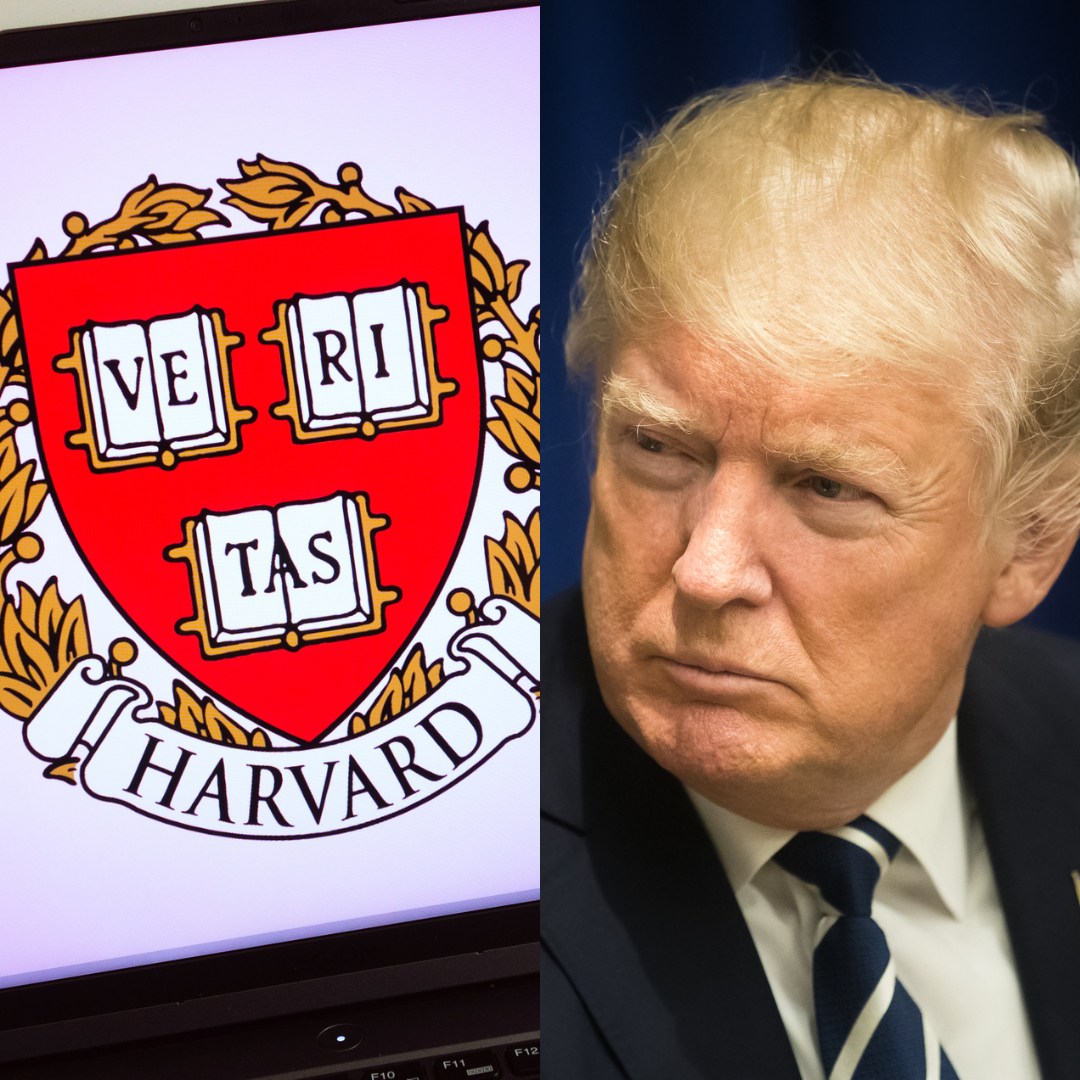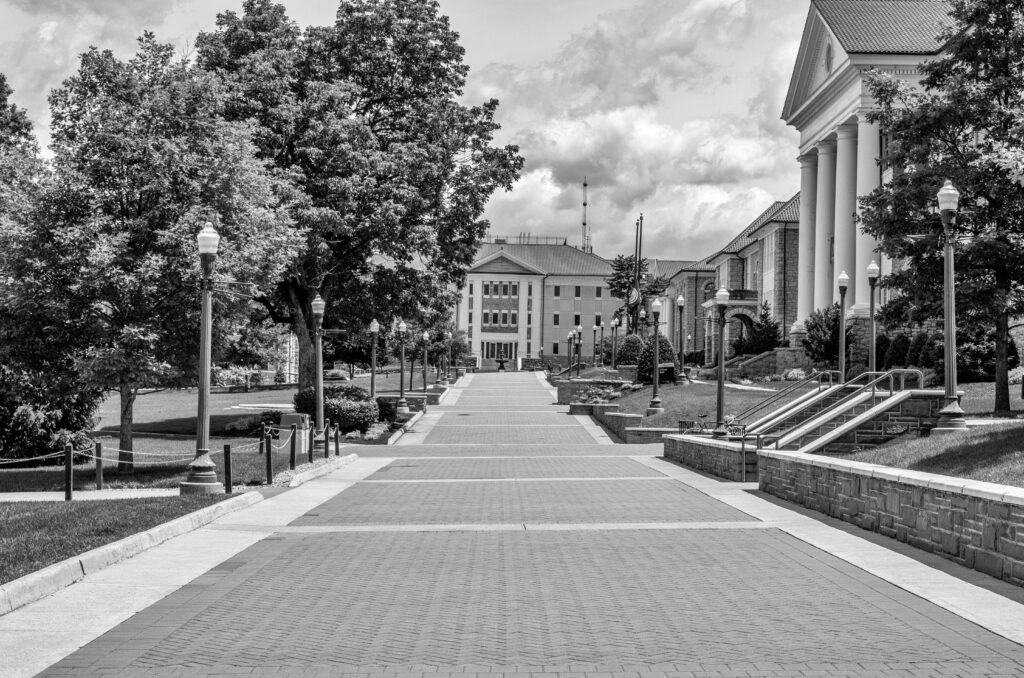
The Trump administration froze billions in federal research grants for Harvard University in April. This created an unprecedented clash between the White House and one of America’s most prestigious schools. The standoff led to $2.2 billion in canceled federal funding, which affected vital research projects like cancer screenings and lung disease studies.
The battle between Donald Trump and Harvard goes beyond just money. Trump’s team attempted to stop Harvard from taking part in the Student and Exchange Visitor Program. This would have blocked the university from enrolling international students and forced more than a quarter of Harvard’s students to switch schools or leave the U.S.. A federal judge stepped in and blocked the ban because it would cause “immediate and irreparable” damage to the school.
Trump has publicly stated that Harvard loses another $250 million in funding every time it challenges his administration. He wants Harvard to limit its foreign student enrollment to 15%, especially when students come from what he called “radicalized” areas. Harvard’s President Alan Garber has expressed his concerns that this fight could put critical research at risk. This includes work to help childhood cancer survivors and efforts to better understand how infectious diseases spread.
How Trump’s Crackdown Impacts Harvard’s International Students
Harvard’s international community felt a sudden shock when the university lost its certification for the Student and Exchange Visitor Program after it was revoked by the Trump administration. The impact reached deep – about 5,000 students from over 125 countries, making up more than 25% of Harvard’s student body, faced possible deportation or transfer to other schools.
Students Uncertainty Over Graduation and Visas
The Trump administration’s actions created major disruptions for Harvard’s international students. Seniors worried about finishing their degrees and attending graduation ceremonies. The uncertainty also cast a shadow over research projects, summer internships, and graduate school admissions.
Students with different types of visas felt the impact, especially those with F-1 visas for academic studies and J-1 visas for exchange visitors. Many students found it hard to plan ahead, and some thought about emergency transfers to other universities despite their years at Harvard.
Temporary Court Order Offers Limited Relief
A federal judge has blocked the administration’s attempt to revoke Harvard’s certification with a temporary restraining order. All the same, students continue to live in uncertainty as the order only lasts until a full hearing.
Harvard’s International Office has told students to have backup plans ready, even with this temporary relief. The university has created an emergency response team and a special hotline to help affected students. Faculty members have also looked into ways students could finish their coursework remotely if needed.
Why is Trump Targeting Harvard?
The Harvard-Trump conflict centers on a complex web of accusations, demands, and political objectives. Harvard President Alan Garber called it a “cultural battle” against the university, as the administration’s pressure campaign now includes at least eight investigations across six federal agencies.
Allegations of Antisemitism and Ideological Bias
There have been claims that Harvard has failed to protect Jewish students from harassment during Gaza war protests and they serve as the main reason for targeting the university. Jewish students have felt ostracized according to a task force report. Some peers and faculty told them to disavow their Israel ties to prove they were “one of the good ones”. The administration points to these concerns, yet former Harvard Hillel president Jacob Miller believes their policies would “do nothing to curb this age-old hatred”.
Demands to End DEI Programs and Enforce Viewpoint Diversity
The Trump administration released a long list of demands that went beyond addressing antisemitism. The demands included implementing “audits” to ensure “viewpoint diversity” in every department. They also want to ban admission of students “hostile to American values” and change the university’s governance structure. Harvard showed some willingness to adapt amid political hostility by renaming its Office of Equity, Diversity, Inclusion and Belonging to the Office of Community and Student Life.
Political Motivations and Conservative Criticism
Conservative grievances against elite academic institutions run deeper than antisemitism concerns. Critics point out Harvard’s lack of political balance, as roughly 80% of its faculty identify as liberal or very liberal. President Trump called Harvard “very antisemitic” and suggested moving the institution’s federal funding to trade schools “where his voters are more likely to send their kids”. Harvard psychology professor Steven Pinker sees this approach similar to tactics of “totalitarian dictatorships” that try to “intimidate independent civic society organizations”.
The administration’s demands reveal broader ambitions to reshape elite higher education and its perceived liberal influence, though antisemitism concerns remain their official justification.
How Harvard is Fighting Back
Harvard has since launched a strong legal counteroffensive against the Trump administration’s actions by filing two major lawsuits in federal court to protect its independence.
Harvard’s Legal Arguments on Academic Freedom
The university’s legal challenge focuses on First Amendment protections. Harvard believes the government’s demands are “unprecedented assertions of power, unmoored from the law” that violate constitutional free speech guarantees. The university’s position states that colleges have “a constitutionally protected right to manage an academic community and evaluate teaching and scholarship free from governmental interference”.
The lawsuit also claims the administration didn’t follow federal procedures when it implemented a “freeze-first strategy”. The 30-year old law requires specific steps before fund termination: voluntary negotiations, an official hearing, and findings. Funding cuts can only happen 30 days after findings are released.
Statements from President Alan Garber
President Garber has also written a scathing letter stating “No government—regardless of which party is in power—should dictate what private universities can teach, whom they can admit and hire, and which areas of study and inquiry they can pursue”.
Garber stood his ground when addressing the administration’s demands for “viewpoint diversity” and department audits. “The University will not surrender its independence or relinquish its constitutional rights. Neither Harvard nor any other private university can allow itself to be taken over by the federal government”.
Comparison with Columbia
Columbia University has taken a different path compared to Harvard’s approach. Columbia agreed to new changes after the Trump administration cut $400 million in funding. They placed their Middle Eastern, South Asian and African Studies Department under new oversight, enhanced campus security, and strengthened disciplinary policies.
Trump highlighted this difference: “Columbia has been very antisemitic… But they’re working with us on finding a solution. And they take it off that hot seat. But Harvard wants to fight”. Former Columbia president Lee Bollinger sees Harvard’s resistance as “precisely what has been needed” – representing “a major institution willing to defend the fundamental values at stake”.
What’s at Stake for U.S. Higher Education
The clash between Trump’s administration and Harvard brings up key questions about academic independence in America’s higher education system. The confrontation goes beyond affecting just one university. It could reshape how government and educational institutions interact across the country.
Broader Implications for Federal Control Over Universities
The Trump administration’s unprecedented actions against Harvard has set a worrying precedent for federal intervention in university operations. Government agencies had previously kept their distance from academic institutions. They focused on regulatory compliance rather than getting involved in institutional management. But this fundamental change threatens academic freedom – a principle that has made American higher education stand out worldwide.
Academic leaders across the country worry that demands for “viewpoint diversity” audits won’t stop at Harvard. Other universities might face pressure to change their curricula, hiring practices, and admissions policies. These changes would stem from political motives rather than educational merit.
Impact on Research, Innovation, and Global Reputation
Harvard’s frozen federal research funding puts crucial scientific work at risk beyond campus walls. The affected projects include:
- Cancer screening breakthroughs that could save thousands of lives
- Climate change research with international partners
- Infectious disease monitoring systems that affect public health
American universities’ reputation as research powerhouses depends on their freedom from political interference. Yes, it is worth asking if the U.S. can stay a global research leader amid such political uncertainty.
Future of International Student Programs in the U.S.
Trying to revoke Harvard’s certification for international students signals what could be a big change in America’s approach to global education. Foreign students add around $32 billion yearly to the U.S. economy. Higher education ranks among America’s biggest service exports.
Many institutions may now rethink their international recruitment plans. They may worry that political targeting might suddenly disrupt student visas. Foreign applicants could look more at other countries like Canada, Australia, and the UK, where regulations seem more stable. This shift might reduce America’s cultural influence and soft power globally for decades.
The Future of Academic Independence Hangs in the Balance
The battle lines have been drawn. Despite courts blocking some of the government’s actions, the final outcome still remains up in the air as both sides continue to hold their ground. But the outcome of this battle is likely to reshape the relationship between government power and academic freedom and will leave a mark on higher education’s path for decades.
SEE ALSO: The Trump Administration Resumes Student Loan Collections












